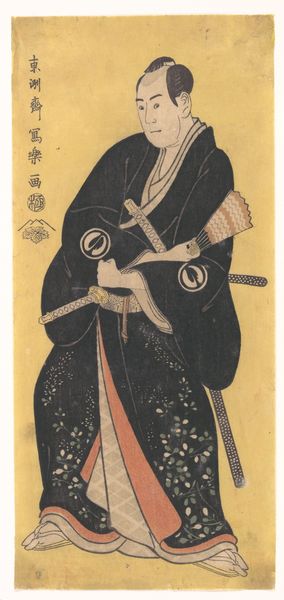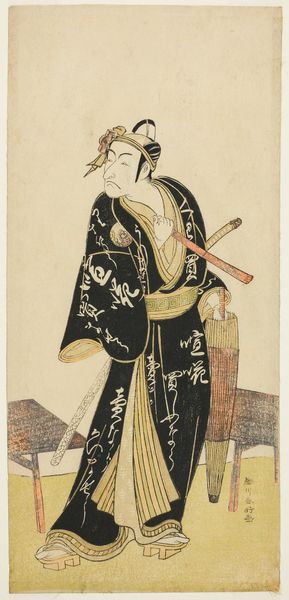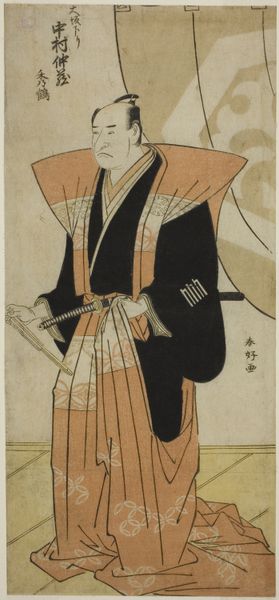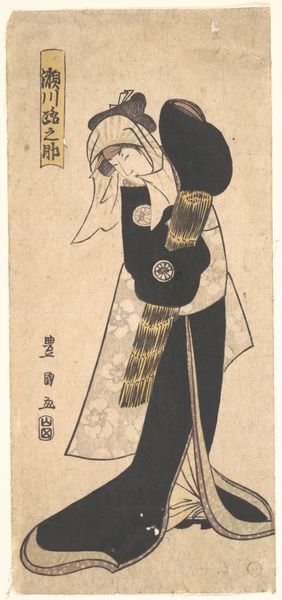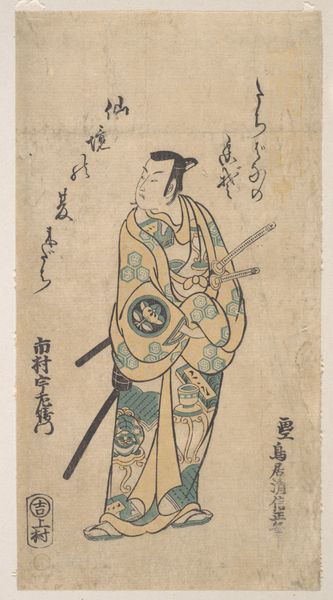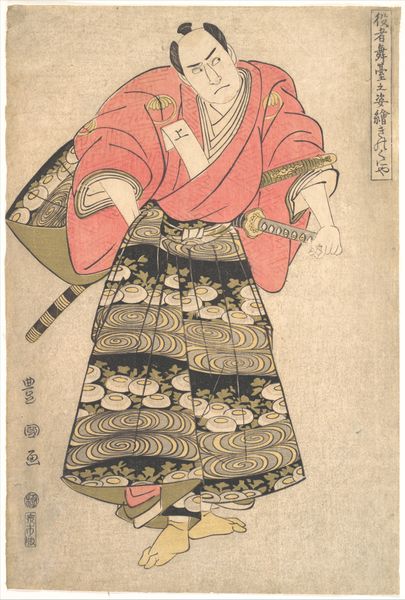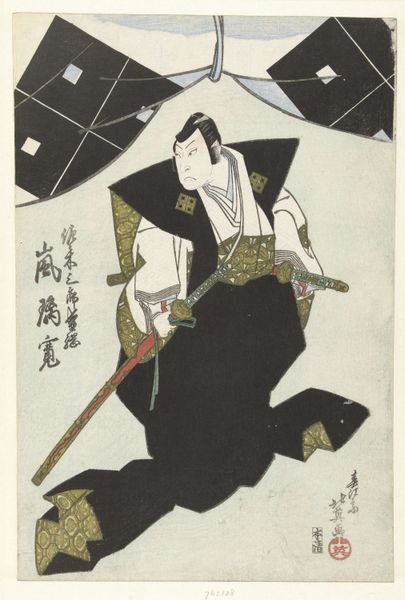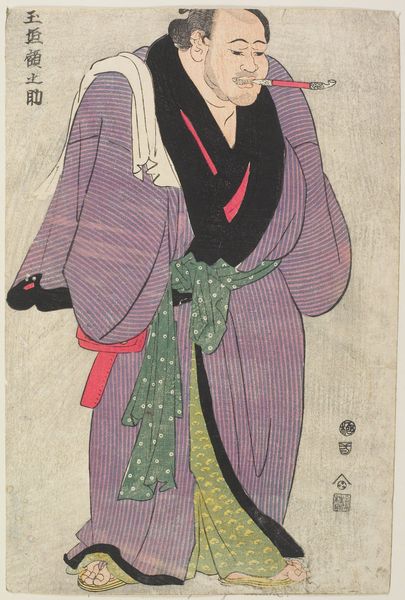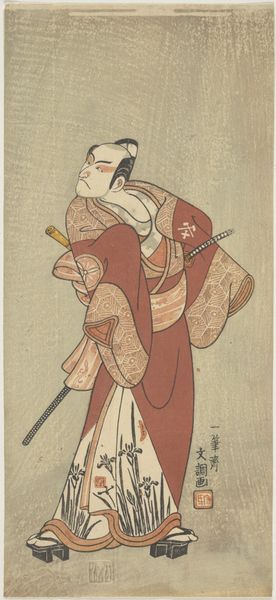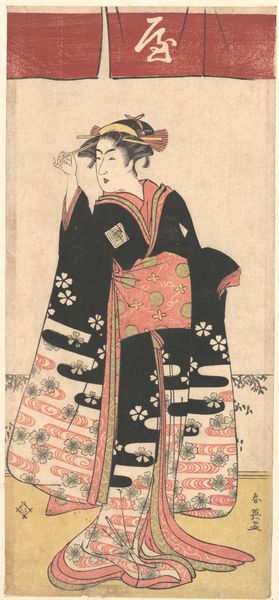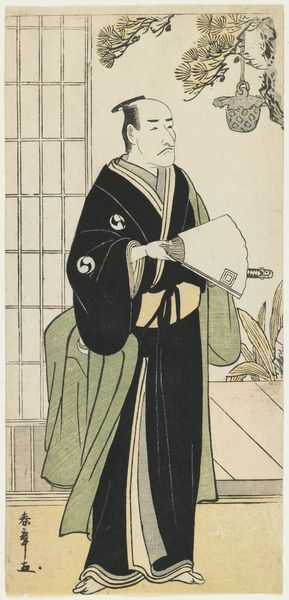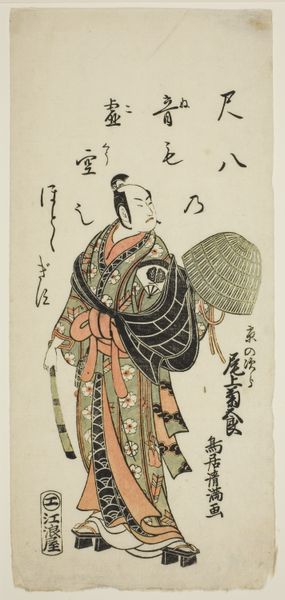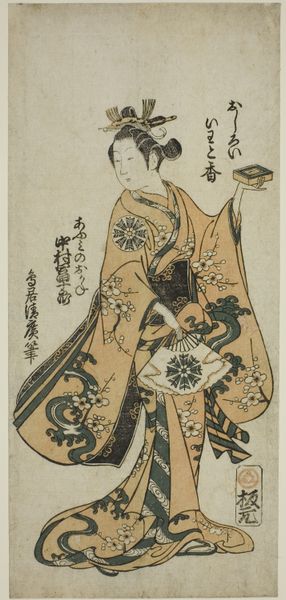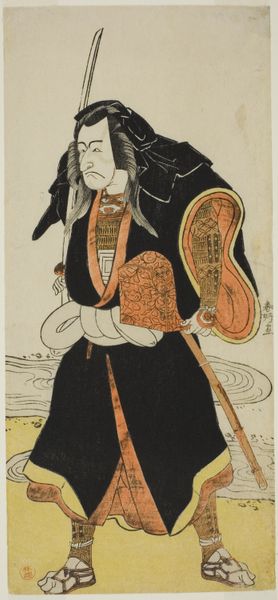
The Actor Sawamura Sojuro III as Nagoya Sanza Motoharu (Sandai-me Sawamura Sojuro no Nagoya Sanza Motoharu) Possibly 1794 - 1796
0:00
0:00
#
portrait
# print
#
caricature
#
asian-art
#
caricature
#
ukiyo-e
Dimensions: 30.5 × 14.4 cm
Copyright: Public Domain
Tōshūsai Sharaku created this woodblock print of the actor Sawamura Sojuro III as Nagoya Sanza Motoharu during the Edo period in Japan. The print captures a specific moment on stage, but also reflects the broader cultural context of theater and celebrity in Japanese society. Kabuki theater was immensely popular, and actors like Sawamura were akin to modern-day movie stars, their images widely circulated and consumed. Sharaku’s print, with its bold lines and unflinching realism, offers a glimpse into the persona of this actor and the character he portrayed. The image creates meaning through visual codes such as the actor's costume and props, which would have been immediately recognizable to contemporary audiences. The print's creation was deeply embedded in the economic structures of Edo-period Japan, supported by a thriving publishing industry catering to the tastes of a growing urban population. Art historians rely on playbills, diaries, and other period documents to reconstruct the social world in which such images were produced and consumed. Only through such research can we fully appreciate the meaning of art, contingent as it is on its social and institutional context.
Comments
No comments
Be the first to comment and join the conversation on the ultimate creative platform.
